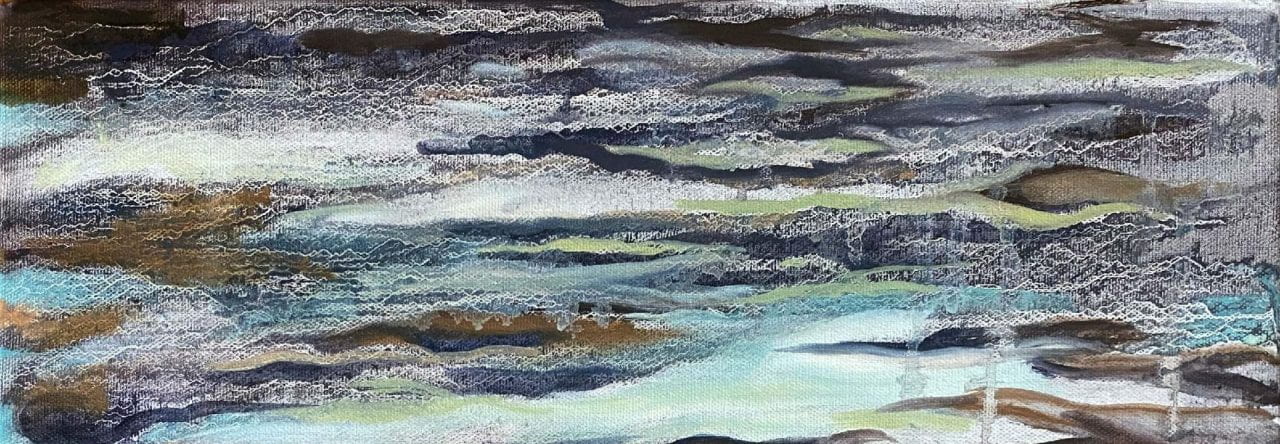In Octavia E. Butler’s 1984 short story “Speech Sounds,” she imagines a world where a virus has decimated human populations globally and brought life as we’ve known it to a standstill. The government and public services are barely functional. People are unable to speak, some have lost the ability to read or write, and communication is only possible through a crude sign language. Butler’s protagonist, Rye, moves through this dystopia alternately resigned, hopeful, and then disillusioned, only to be somewhat hopeful again. The journey of Butler’s character asks readers to question what makes us human and whether humanity is worth saving. While this text may seem prescient given our current world stopping battle with COVID-19, it is just one of many works of Butler’s that seems to have anticipated a future reality. Octavia Butler’s keen understanding of human nature led her to create futuristic visions of worlds that are not that far off from the world we inhabit now. This incredible ability to use science fiction to wrestle with the problems of humanity make her an important storyteller and someone whose fiction deserves to be returned to again and again.
Born under a Cancer sun in Pasadena, California in 1947, Octavia Estelle Butler knew from an early age she wanted to be a writer. She was not the best student (explained later by a dyslexia diagnosis) but she believed in her writing and the stories she could tell. It was the decidedly D-list film, Devil Girl From Mars, that sparked Butler’s life as a science fiction writer, specifically. After seeing the terrible film at the age of twelve, Butler thought, “I can do better than that.” And so she did. She wrote prolifically and did what she could to improve her craft. She participated in writer’s workshops, most notably the Clarion Workshop where she, as the only Black woman in her cohort, sold her first stories, “Childfinder” and “Crossover.”
It was not always easy. Butler’s archive at the Huntington Library in Pasadena includes many of Butler’s personal effects, like scraps of paper that show her by-hand math to figure out how to pay rent and other bills for the month. Her rejection letters from presses and more visibly today, her notes of encouragement to herself that kept her moving when writing got hard, are testaments in the archive to a writer dedicated to the hard work of the craft. In her own words talent and inspiration were nice but “habit was more dependable.” She wrote every day. Even if she wasn’t writing her stories she was writing in her journals and notebooks.
The archive is as impressive as Butler’s many published works. She knew that her writing was important and she preserved her own legacy through her papers in a way that spoke to her belief in herself. Every piece of paper is carefully curated first by Butler and then by the wonderful staff at the Huntington. Her archives reveal a number of stories that were unpublished in Butler’s lifetime but are still yearning to be set free in the exhibits at the Huntington or the many symposiums and conferences developed to honor her work and legacy.
Octavia Butler is a writer whose legacy is revived daily by those touched by her words and work. Ayana Jamieson, founder of the Octavia E. Butler Legacy Network, was moved to start the organization when upon visiting Butler’s gravesite in 2008, found it overgrown and unattended. Jamieson organized a regular memorialization of Butler and started to connect people who were moved by Butler’s writing to create projects in her legacy. From the visionary social justice science fiction created by the writers of Octavia’s Brood, stewarded by adrienne maree brown and Walida Imarisha, to the sonic reinterpretation of Parable of the Sower into an opera helmed by acclaimed musician and singer Toshi Reagon, Butler’s works have inspired so many important projects that keep her legacy alive. Butler’s “found religion” Earthseed featured in Parable of the Sower and Parable of the Talents took off as an actual religion. Africanfuturist writer Nnedi Okorafor and filmmaker Wanuri Kahiu are working together to bring Octavia Butler’s Patternist series of books to television. Writer, director, producer Ava Duvernay is looking to adapt Butler’s Dawn for television. The artists in this project, Dara Bayer and Porsha Olayiwola continue to build on this rich multimedia tradition that Butler’s work still incites.
Dr. Moya Bailey’s work focuses on how race, gender, and sexuality are represented in media and medicine. She is also the digital alchemist for the Octavia E. Butler Legacy Network and is an assistant professor of Africana Studies and Women’s, Gender, and Sexuality Studies at Northeastern University.

